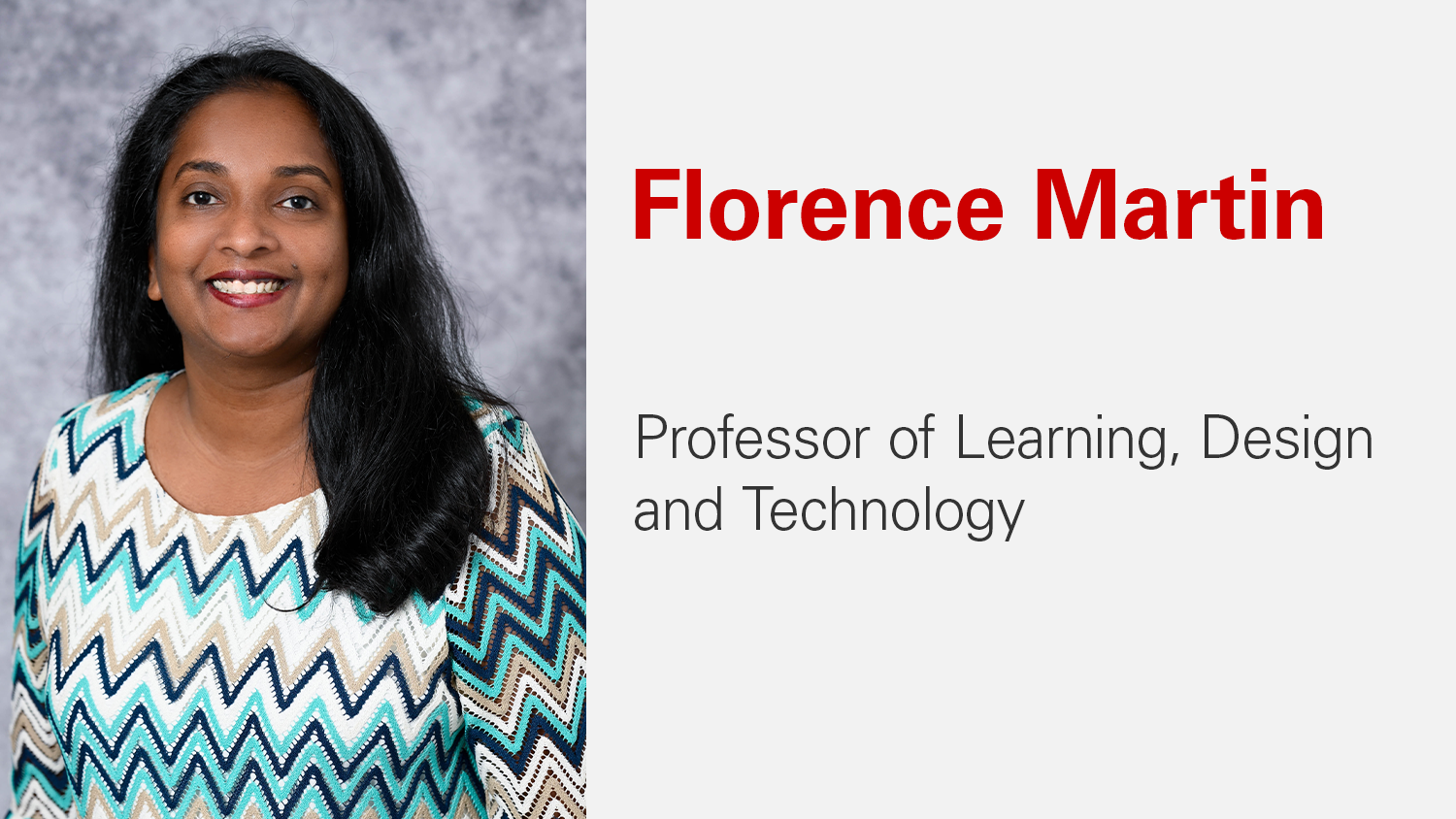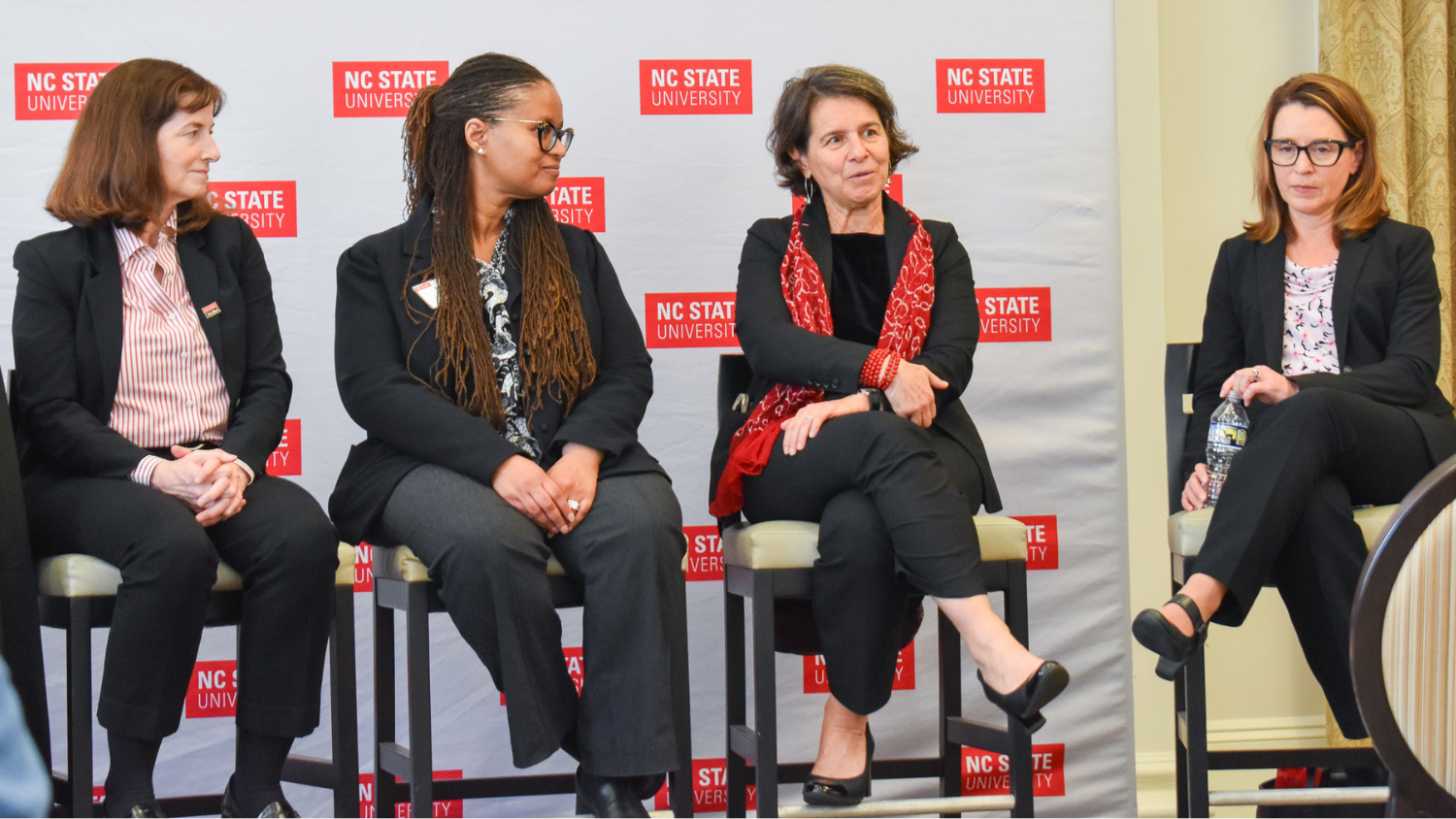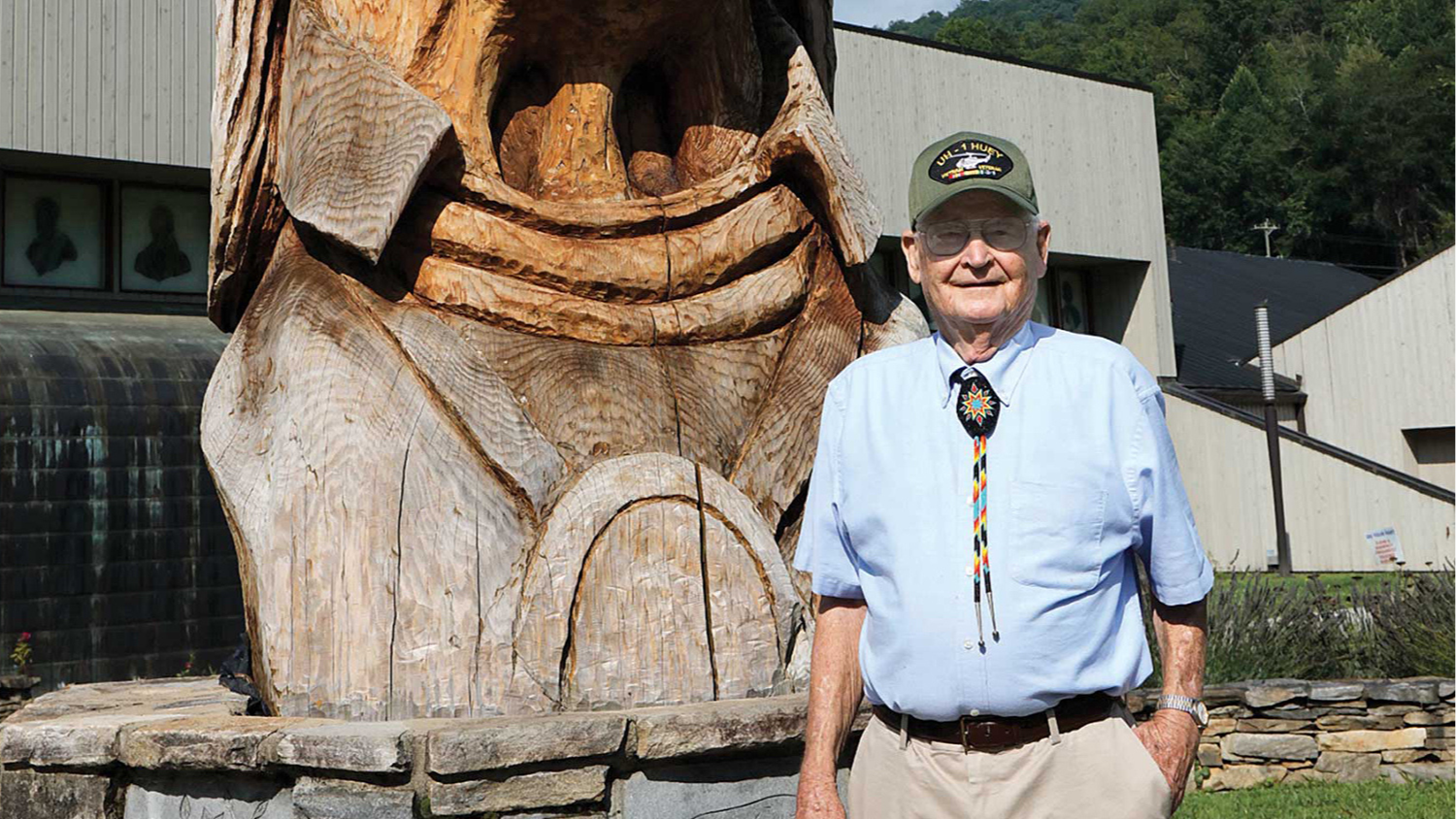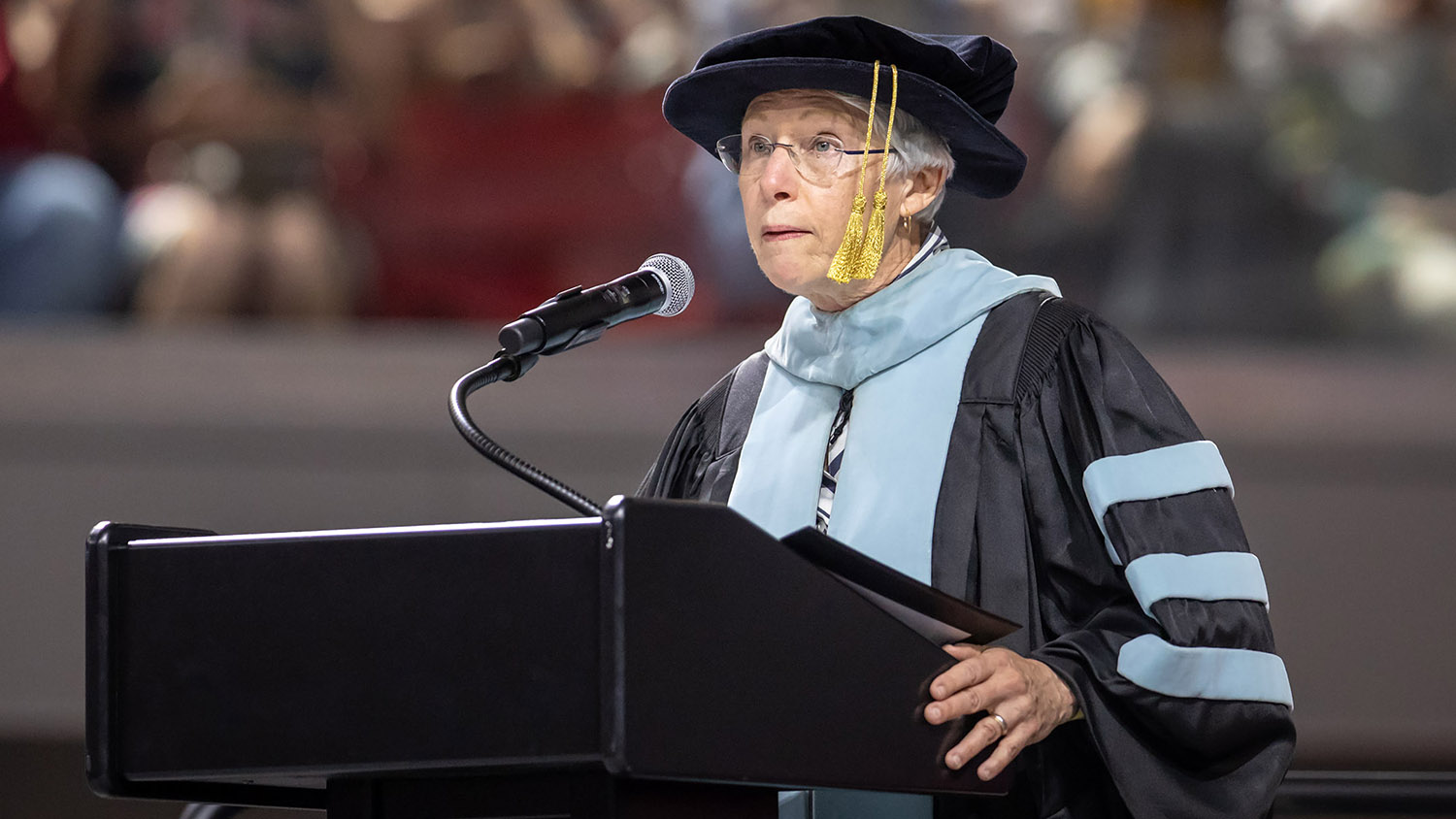Meet Professor of Learning Design and Technology Florence Martin: ‘I Hope to Provide Students with the Knowledge and Skills They Need for Their Careers’

Florence Martin will join NC State’s College of Education in the 2022-23 academic year as a professor of learning, design and technology in the Department of Teacher Education and Learning Sciences.
Martin previously directed and taught in graduate programs at the University of North Carolina at Charlotte’s Cato College of Education and at University of North Carolina at Wilmington’s Watson College of Education. She earned her doctorate and master’s degrees in educational technology from Arizona State University,
In the following Q&A, she discusses why she chose a career in education, how she chose her research focus and what academic work she is most proud of in her career.
This Q&A has been edited for clarity.
Why did you choose a career in education?
After completing my undergraduate degree in engineering, my passion for teaching and technology led me to the field of education, specifically educational technology. I chose a career in educational technology as I believed that, through it, I will be able to support the systematic design of instruction and effective integration of technology for teaching in various settings.
What inspired you to pursue a doctoral degree?
Towards the completion of my master’s degree, I realized that to teach and research at the university level, I needed a doctoral degree. This led me to pursue a doctoral degree in educational technology. Through my research and teaching, I am now able to impact several more classrooms and courses.
What are your research interests?
I engage in research to create transformative learning experiences through effective design and integration of digital teaching and learning innovations. In recent years, I have researched the design of online learning environments, cybersecurity and computer science education, and competencies for learning and development professionals to provide equitable learning opportunities
What sparked your interest in those topics?
As an instructor teaching online, I was looking for ways to be effective in my online courses. This led me to research on online teaching and learning topics. The need to keep our students safe in this digital world led me to research on cybersecurity education. Also, the importance of computing in everyday life led me to research on computer science education.
What is one moment or project in your academic career that you are particularly proud of?
I am proud of my work on digital safety. Through this National Science Foundation-funded project, we were able to offer summer camps on digital safety to about 200 elementary school students. With children being exposed to technology at a very young age, I am glad we can educate them through these camps on how to be safe in this digital world.
What is your teaching philosophy?
My teaching philosophy is that well-designed instruction can enhance the learning process and stimulate learners to engage in original thought. Also, teaching technology is a profession that requires a commitment towards knowledge acquisition and an opportunity for a lifelong learning experience.
What do you hope your students learn from you?
I hope to provide students with the knowledge and skills they need for their careers either as instructional designers, learning technologists, technology facilitators, e-learning specialists, distance learning coordinators, researchers, professors etc.
What makes someone an “extraordinary educator?”
Some of the aspects I believe are essential for someone to be an “extraordinary educator” include, being a student-centered instructor, addressing the needs of diverse students, being a life-long learner, keeping up with the changing trends of the field, using student and peer evaluations to improve instruction and using data for decision-making. Also, in this digital age, it is important for instructors to be able to teach using the various modalities effectively; face to face, hybrid, synchronous, asynchronous and bichronous online courses.
- Categories:


